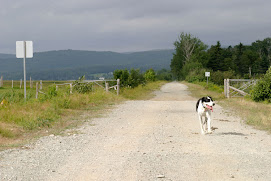Monday, November 10, 2008
Repeat after me: the science is settled
Jim Gomes concludes his "Climate Plan in Peril" (11/10/08) with the mantra, "There is no longer any debate about the fundamental scientific question: The earth's climate is already changing, and human activities are the cause." Global warming alarmists seem to think that if they just repeat this often enough, they might convince the reluctant public to go along with their expensive schemes to fix the weather. Anyone with half a brain and an internet connection can find mountains of evidence that the debate is far from over.
Kicking the stone of global warming
Ian McEwan declares that “The [global warming] deniers are folding their tents,” despite the obvious contradiction of this statement by its inclusion in a debate with Bjorn Lomborg in the nation’s second largest newspaper, a paper whose editorial board frequently challenges the debate-squelching mantras of Big Climate.
McEwan’s snide rhetorical question, “and what was to deny?” diminishes the dialogue over this important issue. There is fervent debate over global warming science, as well as over the political solutions being proposed (e.g., the accompanying Lomborg essay). To take one example, the link between warming and hurricane strength, cited by McEwan as undeniable and inconvenient proof, is far from clear. A search for “hurricane + global warming” produces page after page of scientific literature on this debate. Recent literature trends toward denying the connection—but the more important point is that a debate among scientists exists and should not be shut down by a novelist who hasn’t bothered to spend 0.45 seconds on an internet search to verify his pronouncements.
McEwan attempts to contrast the “sturdy common sense” of global warming alarmism and the philosophical idealism of those who deny its reality. I would argue that the reverse it true. The global warming alarmism industry relies on computer models to project catastrophic fantasies centuries into the future. As Michael Crichton pointed out recently on your editorial page, “There can be no observational data about the year 2100.”
McEwan’s snide rhetorical question, “and what was to deny?” diminishes the dialogue over this important issue. There is fervent debate over global warming science, as well as over the political solutions being proposed (e.g., the accompanying Lomborg essay). To take one example, the link between warming and hurricane strength, cited by McEwan as undeniable and inconvenient proof, is far from clear. A search for “hurricane + global warming” produces page after page of scientific literature on this debate. Recent literature trends toward denying the connection—but the more important point is that a debate among scientists exists and should not be shut down by a novelist who hasn’t bothered to spend 0.45 seconds on an internet search to verify his pronouncements.
McEwan attempts to contrast the “sturdy common sense” of global warming alarmism and the philosophical idealism of those who deny its reality. I would argue that the reverse it true. The global warming alarmism industry relies on computer models to project catastrophic fantasies centuries into the future. As Michael Crichton pointed out recently on your editorial page, “There can be no observational data about the year 2100.”
Subscribe to:
Comments (Atom)

